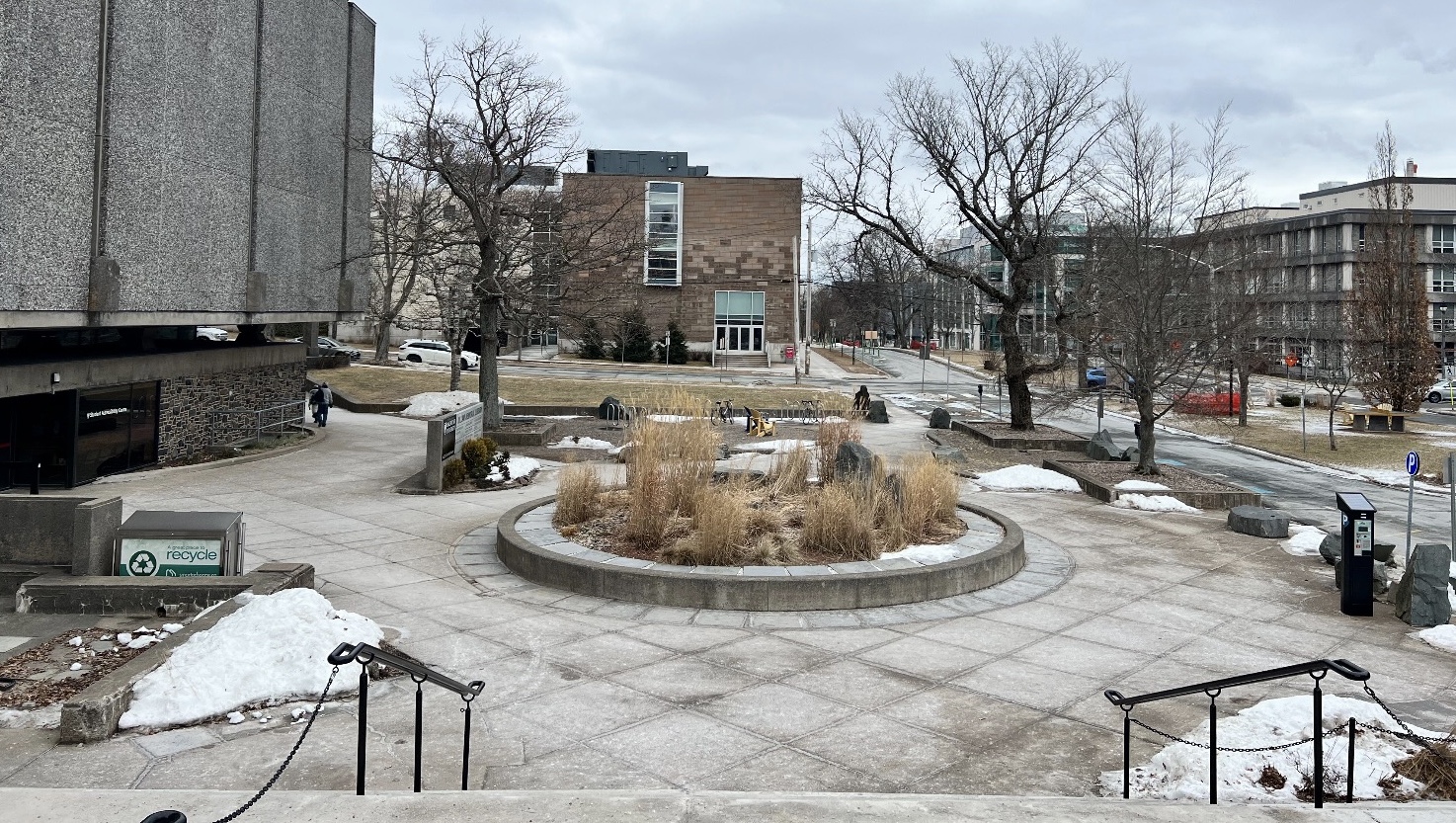University students on return to in-person classes: To go or not to go?
Reactions mixed after decision to open up universities during Omicron wave

caption
The Killam Memorial Library has been idle while online classes were mandatory. Next week, students return to campus for in-person learning.Opinion is still divided among students and staff of Nova Scotia universities, as the return to on-campus learning Jan. 31 draws near.
Several Nova Scotia universities, including Dalhousie, King’s and Mount Saint Vincent, will return over 50 per cent of the province’s 49,200 post-secondary students to in-person learning.
Many students are excited to be back, simply because they’re tired of online learning.
Sebastian Penagos, a fourth-year marine biology student at Dalhousie, is one of them. Related stories
“It sucks because a few of my courses like practical aquaculture are still going to be online, but just getting out of the house and actually feeling like I’m in university is going to be so nice,” he said.
He added that he’s tired of online learning and that this will be a good chance to change it up.
“It’s my final year so I want to be able to have connections with friends and the professor that I normally wouldn’t have online.”
Some professors feel the same way. Philip Bennett, a professor of physics and atmospheric science at Dalhousie, said that he’s pleased the university is trying to get away from online learning.
“Everybody’s felt rather disconnected this past year,” he added. “It’s been very hard for some of the second and third year students who have been in a completely virtual world. They don’t meet their colleagues at all.”
The return to classrooms is also a point of excitement for students whose degrees require elements of hands-on learning.
Louis Guitton, a first-year IT student at Nova Scotia Community College, said he really hopes the return works out.
“In our program, we learn stuff like networking and wiring cables,” he said. “I can do that online, but I’ll be able to learn a lot more with hands-on experience.”
Although Guitton’s NSCC class won’t return until Feb. 7, he’s optimistic it will work out.
“I think waiting is a smart approach because case counts are still high, but being back in person will just be more exciting,” he added. “I hope the re-opening of Dalhousie goes safely so we can follow suit.”
However, some students are far more nervous about being back in the classroom. Megan Campbell, a third-year psychology student at Mount Saint Vincent, said that although she’s excited to meet her professors in person, she sees several issues with the prospect of being back.
“Of course I’m worried about someone having COVID, not knowing it and then spreading it, but that’s not all,” she said.
“I’m also worried about my mix of in person and online classes. I have back-to-back classes and I cannot make it back home in time for the online class. I’m unsure where a good and quiet place is to have my class on campus where I also won’t be distracting other people.”
Campbell added that MSVU is working to sort logistics out, but that nothing is confirmed.
“I feel like I’m often left with more questions than answers after reading an email from (MSVU) about COVID.”
Daniel Long, a second-year business and hospitality student at Nova Scotia Community College shared Campbell’s health concerns.
“I don’t think the school is ready for this many students,” he said. “The government is hiding the active case numbers so people don’t realize how bad (COVID) is. I do not feel safe at all.”
This lack of security has been felt by university students who’ve already returned to in-classroom learning. Acadia University has been in-person since Jan. 24. Bruno Stevaux, a fourth-year computer science student, has been forced to self-isolate due to a COVID scare in one of his classes.
“I always take care of myself in public and refrain from going anywhere that I don’t have to,” he said. “Yet because I was forced to go to class to avoid missing material, there is a chance I now have COVID.”
Stevaux added that the student union has been pushing back against the school’s demands, but has been ignored. According to a survey that they sent out, 71 per cent of the respondents stated that they were “more comfortable with online learning.”
“I find it irresponsible for the universities to force us back on campus, especially during the new COVID variant,” he said. “Considering schools have proven they can provide online learning and we’ve had almost two years to adapt to it, the choice just doesn’t make sense.”
Acadia did not respond to a request for comment.
According to David Westwood, president of the Dalhousie Faculty Association, professors are also split on whether or not in-person learning is a good idea.
“A large number of people are very excited and many of us have not been satisfied,” he said.

caption
President of Dalhousie Faculty Association and kinesiology professor David Westwood.Westwood, a professor of kinesiology, added that while he personally feels fine, he understands why people are concerned.
“A lot of people are questioning the push at this time in light of public health messaging,” he said. “They’ve said, ‘if you can work from home, do it to limit the spread, but also by the way, you guys are good to go back.’ It’s puzzling. What’s the rush? And why now?”
These are questions that Paul Wozney, president of the Nova Scotia Teachers Union also asked when public schools allowed students back inside earlier this month.
“I think that the major concerns are really about classrooms being places where explosive spread occurs, even for people who are doing everything right,” he said.
But Wozney added that universities probably don’t need to be as concerned as public schools.
“University policy has mandated that students on campus be vaccinated for a certain period of time, so university classrooms enjoy a much higher rate of full vaccination than public schools,” he said. “It’s not remotely apples to apples.”
Aside from vaccine policies, universities are also enforcing the use of three-layer masks, at the recommendation of the province.
At NSCAD, limits will be placed on the number of students allowed into rooms, visitors will not be allowed and rapid test kits will be available.
According to Martine Durier-Copp, the school’s academic dean, this added level of precaution has made the students very happy.
“I move between the three campuses of NSCAD and talk to students and instructors and I can tell you that everybody is happy to be back face-to-face,” she said.
But not every student body is as satisfied as NSCAD’s. According to Madeleine Stinson, president of the Dalhousie Student Union, the student body is still split.
Stinson, who previously said that the school’s administration “didn’t really consult students” added that as of now, students are “basing their decisions off of what will keep them the healthiest and enable them to access their education — which looks different for everyone.”

caption
Dalhousie Student Union president Madeleine Stinson says her school’s student body is split over whether returning to classes in person is wise..Meanwhile, at NSCC, the student association does not seem worried. Mitchell Brown, the vice president of services said that the student body is “quite excited to be back.”
“I’m personally not too worried about COVID,” he added. “I got my two shots. I’m young and I’m healthy. We’re just trying to get the fun back into school.”
About the author

Josh Neufeldt
The resident esports enthusiast of King's journalism. 4th year with an affinity for gaming, movies and food.
